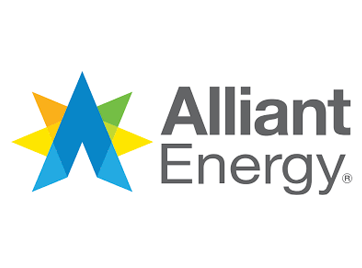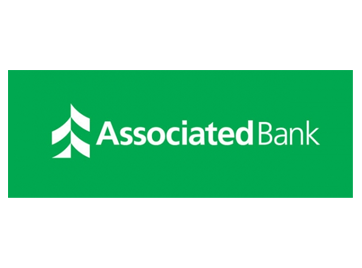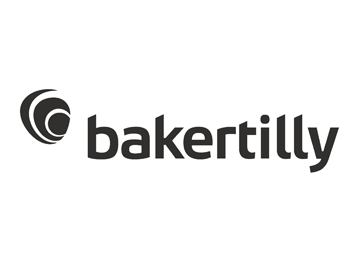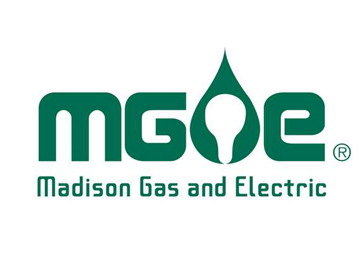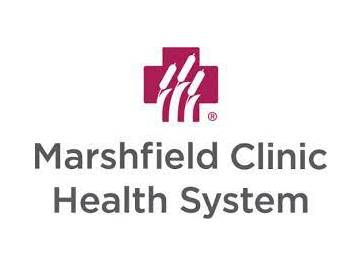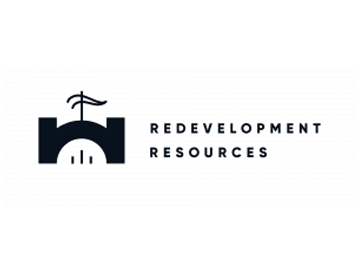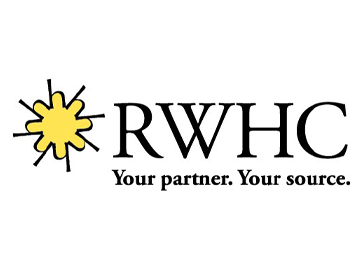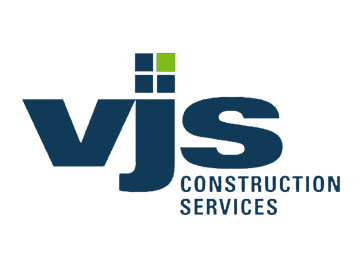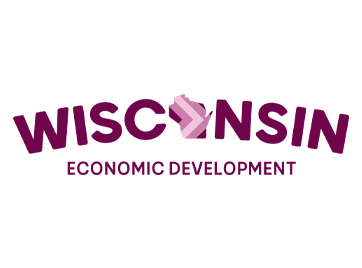In This Edition…
- Message from the WEDA Board Chair: Jason Monnett
- State of the Association: WEDA President and CEO Mary Perry
- WEDC Bulletin: The ingenuity and grit of small business leaders are key to recovery in Wisconsin
- Department of Workforce Development: Strong job growth estimates offer hope to those still out of work
- Wisconsin Economic Development Academy Update: Kathy Heady, Academy Manager
- Check It Out: DNR’s new Economic Development and Green Environment (EDGE) program
- New WEDA Member Spotlight: Rural Wisconsin Health Cooperative
- Gov. Evers Unveils Plan to Invest Federal American Rescue Plan Funds
- State Supreme Court Rules Evers’ Emergency Orders Unlawful
Message from the WEDA Board Chair: Jason Monnett
 Thanks to all that attended, presented at, sponsored, or otherwise supported the 2021 Governor’s Conference on Economic Development Specifically, I would like to commend the members of the Conference Planning Committee, Kathy Davies of WEDA, and Christian Dennik of Walden Productions for their great work in developing the content and delivering it in an engaging virtual format. Here’s hoping that this is the last virtual WEDA conference!
Thanks to all that attended, presented at, sponsored, or otherwise supported the 2021 Governor’s Conference on Economic Development Specifically, I would like to commend the members of the Conference Planning Committee, Kathy Davies of WEDA, and Christian Dennik of Walden Productions for their great work in developing the content and delivering it in an engaging virtual format. Here’s hoping that this is the last virtual WEDA conference!
This spring season finds us in a time of great anticipation for widespread vaccinations that can spur a return to normalcy as businesses and communities continue their overall recovery. It is also an exciting time for WEDA as we welcome our new President & CEO Mary Perry, remain engaged in the state budget process, pursue our legislative agenda, and roll forward with our Academy Programs and the CRA Network. Thank you for your support of WEDA. I look forward with working with you in the dynamic months that lie ahead.
State of the Association: WEDA President and CEO Mary Perry
 Hello WEDA! We have passed the one-year mark since the pandemic changed our world. As I reflect on this milestone and focus on the future, I want to take a moment to say how proud I am of our dedicated economic development professionals and resilient businesses and communities. Momentum is building as we get out to patronize local businesses and enjoy the warmer temperatures with friends and family. Let’s build on that momentum! Wisconsin will soon be completely OPEN FOR BUSINESS!
Hello WEDA! We have passed the one-year mark since the pandemic changed our world. As I reflect on this milestone and focus on the future, I want to take a moment to say how proud I am of our dedicated economic development professionals and resilient businesses and communities. Momentum is building as we get out to patronize local businesses and enjoy the warmer temperatures with friends and family. Let’s build on that momentum! Wisconsin will soon be completely OPEN FOR BUSINESS!
In the last edition of the WEDA Wire, I discussed upcoming WEDA networking and educational opportunities. I am happy to report that we have begun to deliver on that promise with our recent (March 24th) Academy virtual training course that featured a tremendous list of presenters who are experts in commercial and industrial real estate. From design and construction to retail attraction and alternative funding, the live webinar provided attendees with information and tools needed to grow their local economies.
In short, WEDA Academy training and education offers both members and non-members a fantastic opportunity to learn from highly regarded professionals and provides a significant return on investment – as the classes are nominally priced and the exposure to state and national industry leaders is priceless. Look for registration opportunities coming up for our May 26th Academy course, which will feature more commercial and industrial attraction strategies and tactics!
I would also like to touch on the CRA Network, which was recently “re-launched” after a short pause during the height of the pandemic when WEDA presented its statewide community needs survey results. The survey responses represent needs identified in 97% of Wisconsin counties. Priorities like housing, childcare, mental healthcare, workforce, and broadband were cited as common themes across the state. These existed pre-pandemic, but are clearly more of a concern in the current economic climate. With federal pandemic relief dollars now flowing to communities, many of these projects could be CRA-eligible. Through our CRA Network, WEDA stands ready to help your community connect your project with interested lenders.
So if you’re not a WEDA member yet, why not..? WEDA’s sole mission is to make Wisconsin a better place to live and work through economic advancement. We do so by providing effective education, networking, and advocacy. Check out our membership opportunities today!
Finally, I want to encourage you to SAVE THE DATE for our next statewide conference, which will take place in beautiful downtown Appleton, WI on September 29th – October 1st. The conference will highlight a vast array of best practices content relevant to economic and community developers. It will focus on Wisconsin’s economic development toolbox and the programs and polices you can use to energize and grow your communities.
Stay tuned for more details…
The ingenuity and grit of small business leaders are key to recovery in Wisconsin
By WEDC Secretary and CEO Missy Hughes
 One year into the COVID-19 pandemic, Wisconsin’s economy stands at a crossroads between the depths of recession and a return to healthy growth. We need to seize this opportunity for economic recovery by accelerating support for a cornerstone of our prosperity: small businesses.
One year into the COVID-19 pandemic, Wisconsin’s economy stands at a crossroads between the depths of recession and a return to healthy growth. We need to seize this opportunity for economic recovery by accelerating support for a cornerstone of our prosperity: small businesses.
Wisconsin’s small businesses, numbering nearly half a million enterprises, are vital to the health of our state. Yet they were crushed by the pandemic, with industries like retail, leisure, and restaurants in the direct line of fire. Many lacked the financing to get them through lean times and had fewer financial reserves to start with. Overall, the number of small businesses plunged a staggering 29 percent, killing the livelihood for tens of thousands of Wisconsinites.
These closings have had an especially significant impact on communities of color. We know that employees of these businesses – who often are Black, Latino, or women and are earning low wages – make up a huge share of the 230,000 Wisconsin workers who lost their jobs and have not returned to the workforce. Longstanding structural issues of racial and economic inequities crippled many from the start. The types of businesses that people of color own and work in made them further vulnerable. More than half of the Black-owned businesses in Wisconsin, for example, are in the arts, accommodations and food service, and retail sectors – all of which were among the hardest hit.
As I testified recently the Assembly Committee on Small Business Development and the Senate Committee on Economic and Workforce Development, the Wisconsin Economic Development Corporation (WEDC) made an unprecedented effort during the pandemic to alleviate those tragic results. Last year, we provided nearly $245 million in federal CARES Act assistance to more than 60,000 small businesses through the We’re All In grants program – in a typical year, we would have made just 300 or so awards.
Federal relief serves as a critical down payment on our economic recovery, but we need to maintain the momentum of those programs with new resources and new initiatives.
Some of our ideas are already contained in Governor Evers’ budget, which allocates $200 million for the WEDC to assist small businesses. Under this plan, $10 million is earmarked for diverse businesses, and $8 million to support our community partners in economic development. Each of those proposals offers us the opportunity to leverage our assets in Wisconsin and invest in the future with programs such as helping to connect employers with qualified employees and provide capital to entrepreneurs.
The budget also provides a $100 million venture capital fund that will allow us to invest in the pipeline of new ideas as well as support small businesses getting back on their feet.
The people running small businesses in Wisconsin have navigated a treacherous year and worked tirelessly to stay open – changing their business models, innovating to meet customers’ needs, and showing the grit and determination that makes Wisconsin great.
It’s exciting to think that after a terrible 2020, we may soon finally be on top of the coronavirus. With the right policies and resources, we can ensure that our small businesses, and our economy, will come out on top as well.
Department of Workforce Development: Strong job growth estimates offer hope to those still out of work
Short-term occupation and industry job projections for the state of Wisconsin show strong growth through the 2nd quarter of 2022. These estimates point to a continued, swift recovery of the job losses felt through the early months of the COVID-19 pandemic.
Based on the Department of Workforce state labor economist’s projections, Wisconsin will add 243,511 new jobs by mid-2022, an 8.2% increase.
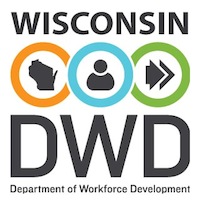
“This is great news for the Wisconsin worker, and the Wisconsin economy as a whole,” DWD Chief Labor Economist Dennis Winters said. “The COVID-19 pandemic that spread throughout the globe in 2020 caused the swiftest job loss in our state’s history, and potentially changed the workplace in many industries indefinitely. Employers in many industries will adapt their workplaces to the post-COVID economy. And as restrictions are eased, industries like Leisure and Hospitality are poised to grow rapidly as consumer demand increases.”
Wisconsin’s strong manufacturing and construction sectors eased the impact of COVID-19 on state jobs compared to states that are more reliant on a single industry. Still, many workers were left scrambling to change careers or access benefits to survive the sudden downturn.
“Wisconsin’s diverse industry make-up helped our economy weather the impact of the COVID pandemic better than some other states, but many workers and businesses continue to struggle. These projections are encouraging, and DWD stands ready to assist workers as they transition back into the workforce,” DWD Secretary-designee Pechacek said.
The current short-term projections consider the impact of COVID-19 on all industries and occupations in the state.
DWD economists work with state and local partners to offer analysis and understanding into workforce development trends and challenges. They develop long-term (10-year) and short-term (2-year) projections of employment across Wisconsin’s approximately 300 industries and 800 occupations.
Visit WisConomy.com for the latest labor market information for the state of Wisconsin.
Wisconsin Economic Development Academy Update: Kathy Heady, Academy Manager

On March 24, the Academy held a virtual comprehensive program – The Evolving Commercial Real Estate Market: Challenges and Opportunities for Communities. This course provided a comprehensive review of short- and long-term trends underway in the commercial real estate market, focusing on the retail, office, and industrial segments. Participants gained an understanding of key trends that may impact development/redevelopment and the speakers provided insights into how communities can be prepared for these trends to maximize opportunities, address challenges, and build resiliency. A big thank you again to our instructors and participants!
On May 26, from 1:30-3:00 p.m., the Academy will be holding our next webinar – Business Attraction: Selling Your Community Assets (Please note that this is a date change from the original schedule). This program is a fundamentals course and will provide an introduction to business attraction. Topics for the Business Attraction course will include business attraction from the perspective of the site selection consultant, how your community can be prepared for business attraction, and responding to Request for Proposals (RFP). Best practices will be included. Instructors for the program include Ken Maly, CEcD, Senior Managing Director, Global Strategy; Kim L. Moore, CEcD, EDFP, EDMP, Senior Managing Director, Consulting with NEWMARK; and Coleman J. Peiffer, AICP, Senior Business AttractionManager, Alliant Energy. We encourage you to invite your Board Members and local officials to attend this program. Registration will be open on weda.org within the next few weeks.
The Academy will be hosting two additional webinars in 2021, Managing Economic Development Organizations on August 11 and Placemaking: Creating Your Quality Place on November 10. A comprehensive program, Workforce Development: Overcoming Barriers – Building Opportunities, will be held on September 29 just prior to the WEDA Fall Conference.
I hope that you will be able to join us for one or more of these exciting and affordable educational opportunities. As a reminder, be sure to look for approved credits/points for continuing education/recertification on the course registration information. Please reach out to me at kheady@weda.org if you have any program ideas or recommendations or if you are interested in serving as an instructor.
Check It Out: DNR’s new Economic Development and Green Environment (EDGE) program
The DNR’s new Economic Development and Green Environment (EDGE) program combines the benefits of three DNR programs to create a unique and sustainable economic development tool that incentivizes manufacturing companies that capitalize on the reuse and redevelopment of brownfield sites.
EDGE offers environmental certainty to businesses and developers, supports local economic development and leverages the unique benefits of redeveloping brownfields, which are often in areas with existing infrastructure and access to a skilled workforce.
This pilot program provides incentives to Wisconsin’s manufacturing economy in three ways:
- Green Tier provides unique benefits for organizations that voluntarily commit to go beyond compliance and strive to achieve superior environmental performance;
- Registration Operation Permits (ROPs) are a simplified air permit that are issued to cover air emissions up to certain levels at eligible facilities. These permits are fast and flexible, enabling businesses to avoid additional permitting and quickly respond to changes in their business; and
- Voluntary Party Liability Exemption (VPLE) is awarded for completing environmental clean-ups of contaminated property by individuals, businesses, developers, or local governments.
To participate in the EDGE program, a company must meet the following three requirements:
- Join Green Tier;
- Build or modify a manufacturing facility that is eligible for any ROP; and
- Redevelop a VPLE brownfield site.
EDGE developments can be large or small, ranging from an existing facility on a small brownfield to several new facilities in an industrial park redevelopment. All potential EDGE development structures contain the certainty of maintaining a healthy environment through responsible development and good corporate citizenship.
In addition to the benefits of the component programs, participants who meet the EDGE criteria secure a 10-year extension from making changes to their air pollution control requirements, unless necessary to meet federal Clean Air Act requirements. If state laws change, EDGE participants are allowed the additional time to plan for the cost, installation and operation of new control devices.
Nearly every Wisconsin community, from small rural areas to large urban neighborhoods, has underused, abandoned industrial and commercial areas in need of revitalization. Sustainable EDGE developments can be implemented in urban or rural communities, revitalizing our local economies and putting brownfields back to work for Wisconsinites.
Let’s build sustainability in Wisconsin. Learn more about the EDGE program on the EDGE web page or by contacting Weston Wegener at 608-284–0908 or DNREDGE@wisconsin.gov
The new Green Tier Registration Permit (ROP-G) is a product of the EDGE program and is designed to expand the eligibility of larger facilities to join the program.
More broadly, any Green Tier participant who joins Tier 2 and is looking to make fast and flexible changes to their permitted operations while remaining committed to a clean environment should consider applying for coverage under this innovative permit.
The ROP-G is the registration permit that allows the greatest amount of air emissions at 80% of the major source threshold and is the only ROP that allows for source-specific conditions. The ability to include source-specific conditions is a benefit for Green Tier sources that might otherwise be ineligible for another registration permit. There are many additional benefits of registration permits including:
- Final determination of eligibility and coverage within 15 business days of receiving a complete application;
- Flexibility to construct, move or modify equipment without requiring additional permitting;
- No expiration date; and
- Low annual fees of just $400.
Owners and operators of innovative businesses interested in becoming environmental champions are encouraged to look at the Wisconsin Department of Natural Resources’ new permit option.
To learn more about ROP-G and to find the application materials, visit the Registration Permit Options web page.
New WEDA Member Spotlight: Rural Wisconsin Health Cooperative
WEDA would like to welcome our newest members – Rural Wisconsin Health Cooperative. The RWHC is owned and operated by forty-three, rural acute, general medical-surgical hospitals. The Cooperative’s emphasis on developing a collaborative network among both freestanding and system affiliated rural hospitals distinguishes it from alternative approaches.
But let’s hear directly from our new member…
There is a new player entering Wisconsin’s economic development field – the Rural Wisconsin Health Cooperative (RWHC)! RWHC is a statewide cooperative comprised of 43 rural acute general medical-surgical hospitals. The cooperative has a twin mission of advocacy and shared services for their members.
While it may seem untraditional for a healthcare organization to be adopting a specific economic development focus, the financial viability of our state’s rural healthcare providers is intrinsically intertwined with the economic health of the rural communities they serve. Rural hospitals are invaluable community members who not only contribute economically as large employers but also have a host of other strengths they can lend to local economic development projects.
RWHC’s new Community Economic Development Program is centered on the following pillars:
- To help their members increase engagement in local economic development initiatives.
- To prepare their members for effective local engagement through education, access to resources and technical assistance.
- To have statewide economic development leaders both consider the impacts their work has on rural healthcare and to view rural healthcare providers as partners in economic development projects.
RWHC will be leveraging an asset based development approach to capitalize on the existing community ties of rural hospitals. The cooperative aims to grow and deepen the rural healthcare sector’s involvement in more diverse and impactful local development efforts. Additionally, RWHC will be using economic development as a tool to improve the social determinants of health in rural Wisconsin.
So how is this relevant for your work as an economic development professional? RWHC & its 43 members across the state would love to partner with you to make the communities we all live in and love stronger, more prosperous places! How would you know if there is a RWHC member in areas where you work? Check out their member map to see their members in every corner of the state, from Door County to Platteville to Ashland.
Curious about learning more? Interested in collaborating? Have an economic development project that you are looking for a healthcare partner or perspective in? If we can ever be of assistance or service, please do not hesitate to reach out to RWHC’s Director of Community Economic Development, Marie Barry, at mbarry@RWHC.com.
State Supreme Court Rules Evers’ Emergency Orders Unlawful
The Wisconsin Supreme Court today ruled that Gov. Evers exceeded his emergency powers in issuing multiple emergency orders to address the COVID-19 pandemic. The 4-3 ruling voids the current mask mandate, which was set to expire next Monday.
Under state law, a single emergency order can be in place for only 60 days, unless the legislature extends it. The court ruling found multiple emergency orders based on the same pandemic or emergency is unlawful, and therefore all of Evers’ subsequent emergency orders are invalid.
The majority opinion was written by Justice Brian Hagedorn, who said: “The question in this case is not whether the Governor acted wisely; it is whether he acted lawfully. We conclude he did not.”
The ruling does not impact orders issued by local health departments, including those requiring masks and limiting business activity.
Media Coverage:
Political Reaction:



